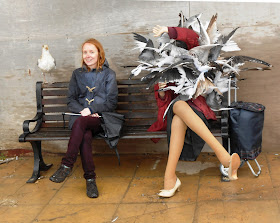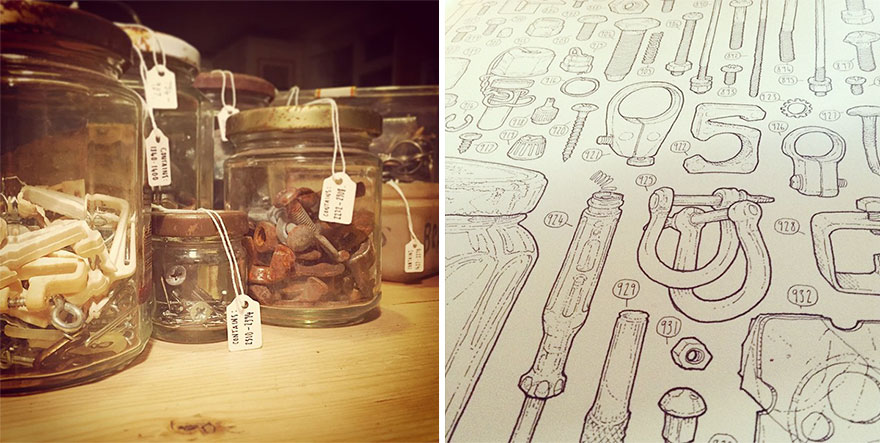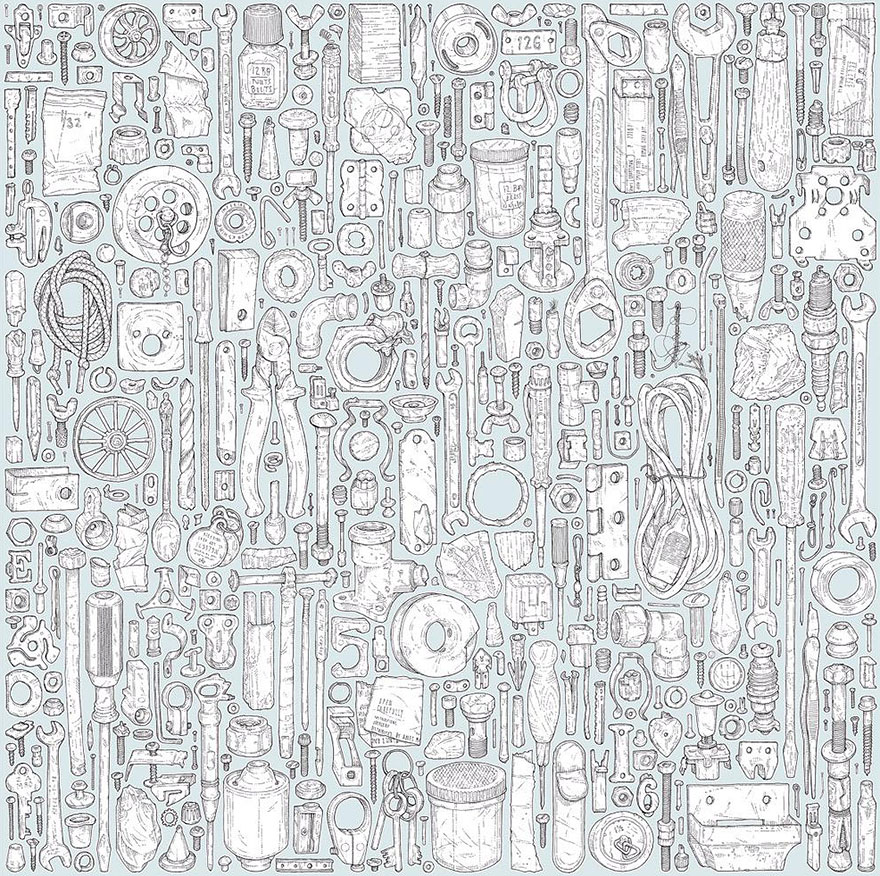To the fabled few Dismaland is an experience worst
endured alone and in the rain.
That’s exactly what I did, except along with
several other hundred people who had the same idea earlier this week one particularly
miserable rain filled morning as I queued along the sea front at the Somerset
seaside town, Weston-Super-Mare. Dubbed
the UK’s ‘most disappointing new visitor attraction’ the exhibition situated in
Weston’s dilapidated Tropicana Lido aims to bemuse and turn the whole idea of
an ‘amusement park’ on its head, subvert it, fill it with irony and humour
mixed with the controversy, political undertones and social commentary that we’ve
come to expect from the Bristol originated street artist’s work. The site features several of Banksy’s works
ever pushing the ‘artist’ as we now seem to call him into territory
increasingly outside that of just graffiti or street art and into the broader
realms of almost Damien Hirst ambitions of being a media savvy entrepreneur. The concept of the park itself and work within it has been curated
(we’re told) by Banksy himself and excitingly features the work of over
fifty other artists including Jenny Holzer and David Shrigley.
Like cogs in the infernal consumer, social media machine
multitudes of us bought into the hype, the speculation and almost feverishness
as we either queued for hours in the rain or clambered in vein in an attempt to
purchase tickets online. An unprecedented demand for what is essentially, ‘an
art exhibition in wolves clothing’ of the likes Charles Saatchi and Nick Serota
(Tate Director) can only dream of! Love Banksy or hate him, there is so much to
be said for the phenomenon in sheer popularity alone that this attraction has
caused. It is possibly one of the most intelligent marketing events in recent
years, that has managed to convince thousands of people to stand for hours
queuing in the rain, endure a truly incompetent website, miserable staff and
terrible customer service based on the promise of having a ‘bad’ or ‘dismal’
time. Our shared frustration and misery only adding to the attractiveness, hype
and irony of the whole experience! Those
lacking a sense of humour need not attend!
Is it all a gimmick, a one-liner a joke at society’s
expense or is there something more to offer in the thinking, artists and work within
Dismaland? If art becomes ‘popular’ it is sometimes dismissed as being a bit
naff, vacuous or shallow in appealing to the masses? Think Pop Art in the early
60s America. But what’s wrong with being popular? We now look upon Pop Art as
something more crucial and important to art history than perhaps the reception
it was met with by critics at the time. I think the mistake that people make is
when they associate popular with being ‘good’ or having ‘quality’ to it which
is often subjective and very often not the case. The grim reaper on a bumper
car, two trucks colliding in on each other, a killer whale jumping from a
toilet into a paddling pool and a beach ball suspended above knives may not be ‘good’
art, ‘tasteful’ or even particularly well-made but is popular because it is
often deliberately easily accessible.
Is a joke that no
one gets funny? Not really unless it’s ironic, you want it to be told in a language,
a wit that everyone can understand. Comic book art, advertising in the 60s is a
visual language meant to be understood by the masses and so political cartoons,
one-liners and non-conformist acts of rebellion are designed to communicate
their message across clearly be it in the form of slogans, word-play, use of
celebrity, parody or satire. The danger of this so called popularity or ‘wisdom
of the crowds’ is exactly that, cliché; and the danger of a lot of work
presented at Dismaland is that in all its clever cynicism it soon grows
tiresome, repetitive and above all is quite quickly forgotten. It is art that
should only be enjoyed as part of a balanced art diet! Even the overtly more
practically used political banners by Ed Hall lose some of their power in being
statically hung in a tent-based installation; they are only really animated in
the context of the people who carry them.
A flat photo-realistic painting of a dystopian landscape, of which there are many in Dismaland doesn’t
have the same meaning in its production and intent behind it as a George Shaw
painting in my opinion. Nor does the asylum seekers raft boat ‘fairground’ style game have the
same lasting resonance that pricks much deeper at your conscience, like an Ai Weiwei
work does, in which the production is as symbolic (if not more so) as the
finished work itself. That’s sort of
where the art in Dismaland disappoints, that it feels confused as to who its real
audience are, if it is disillusioned teenagers, working class, middle class, celebrities, idiots, journalists or all of the above! Guerrilla Island toward the back of the park
does offer some earnestness, some radical politics in the form of a museum of cruel design, objects
designed to hurt (example, pigeon spikes for the homeless), the Comrades Advice
Bureau and a mini library. If you take time to process these amidst the
distractions of the fun fair I salute you.
 Dismaland does well at addressing a bigger political
message about Art, its purpose and value, particularly in how Councils need to
reassess how they value the arts/culture in their towns and cities to create
more provision for them providing easier access to disused spaces; as Dismaland
demonstrates how much prosperity culture can provide to a seaside resort in the
rainy summer holiday months. I enjoyed being part of the spectacle, the
experience; Bill Barminski’s fake security gate made of cardboard was one good example
at using performance within an art experience and I’d be lying if I said it
wasn’t fun exploring the remnants of Tropicana, riding inside the Astronaut’s
Caravan as it spun around you and attempting to knock over anvils with ping-pong
balls. We shouldn’t be afraid to not take art seriously some times and if you are walking around expecting it all to be art you're severely missing the point; its as much of a fair ground as it is an art exhibition as it is a bar and music venue. Make of each what you will! It pokes fun at our familiarity of how we expect to view art in museums and galleries and maybe an amusement park could be a fun place to see art?!
Dismaland does well at addressing a bigger political
message about Art, its purpose and value, particularly in how Councils need to
reassess how they value the arts/culture in their towns and cities to create
more provision for them providing easier access to disused spaces; as Dismaland
demonstrates how much prosperity culture can provide to a seaside resort in the
rainy summer holiday months. I enjoyed being part of the spectacle, the
experience; Bill Barminski’s fake security gate made of cardboard was one good example
at using performance within an art experience and I’d be lying if I said it
wasn’t fun exploring the remnants of Tropicana, riding inside the Astronaut’s
Caravan as it spun around you and attempting to knock over anvils with ping-pong
balls. We shouldn’t be afraid to not take art seriously some times and if you are walking around expecting it all to be art you're severely missing the point; its as much of a fair ground as it is an art exhibition as it is a bar and music venue. Make of each what you will! It pokes fun at our familiarity of how we expect to view art in museums and galleries and maybe an amusement park could be a fun place to see art?!
Its
downfall for me however is given its huge opportunity and press coverage it
could had a rare chance to be so much more than a cheap laugh or a ‘place to be
seen’. I think it plays to the audience as being a consuming, disillusioned society that isn’t
so much looking for answers or solutions as it is for someone to blame. Jaded
by political and capitalist systems in a world increasingly under threat of
environmental self-oblivion; there isn’t much optimism or, if Dismaland was
anything to go by, much in the way of what we can actually do about it. Its
most dismal trait is its portrayal of a troubling acceptance or apathy that the
world may irreconcilably be doomed so why bother. It had the opportunity to be
much more of an activator to promote and encourage positive change but does so
very shallowly or more often choosing to ignore it all together. I am sceptical
whether this Disneyland parody set in a very British stereotypical seaside town
could provide the political awakening that has been somewhat lacking but much
needed in those of my generation and younger? And that really is quite dismal.
But hey, on the plus side makes for some great photo opportunities though!
If you insist on fulfilling the dismalness for yourself then I suggest you arrive at Weston early and queue! For those of you further afield you may want to try booking a ticket online:
Good Luck!
All text & Images Copyright of Natalie Parsley©
All text & Images Copyright of Natalie Parsley©














